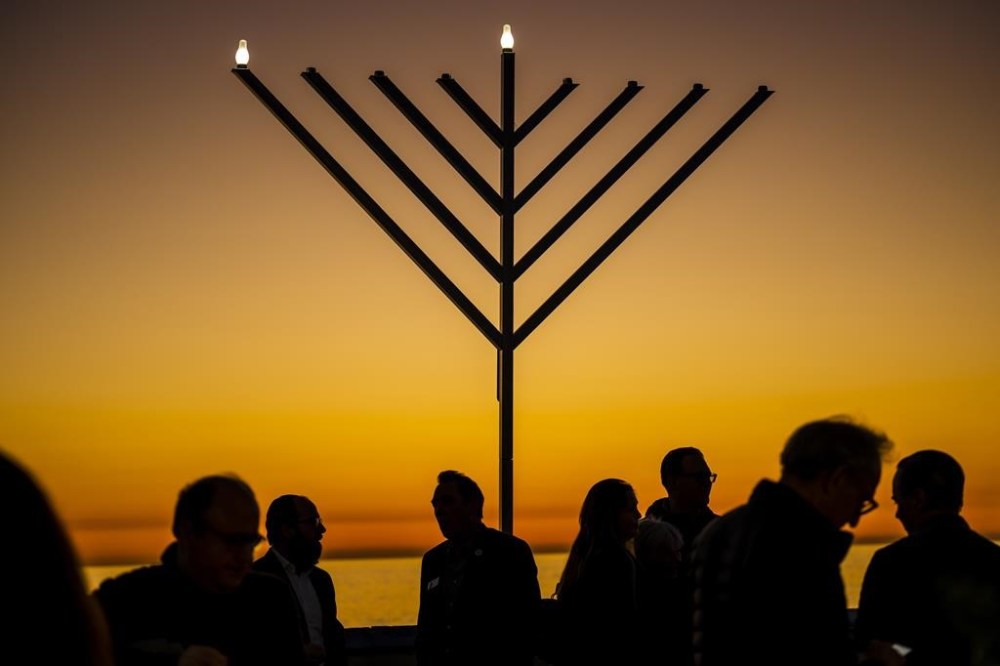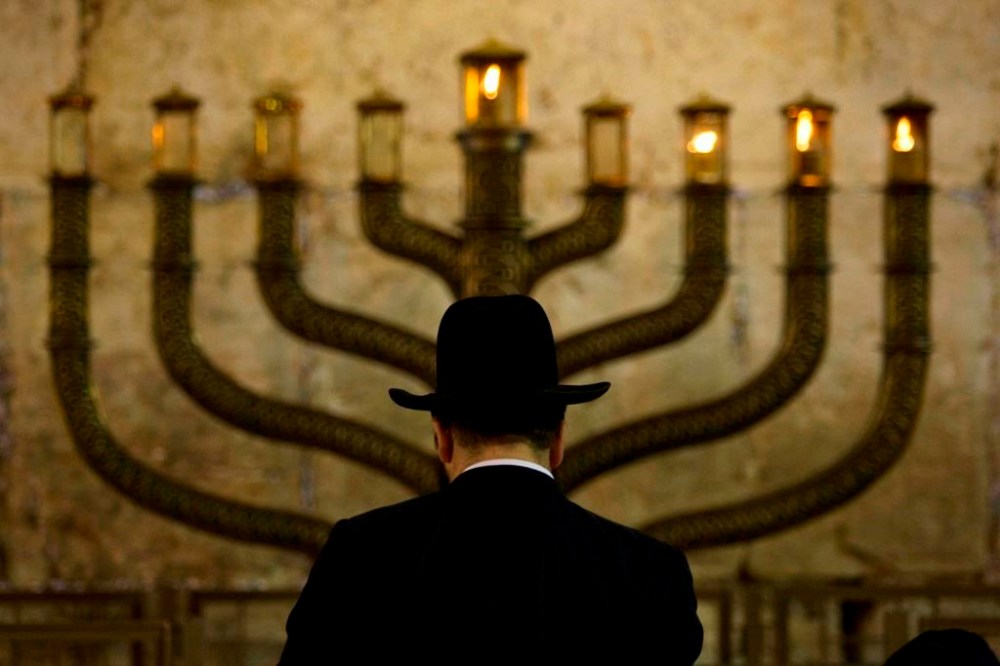What to know about Hanukkah and how it’s celebrated around the world
Advertisement
Read this article for free:
or
Already have an account? Log in here »
To continue reading, please subscribe:
Monthly Digital Subscription
$0 for the first 4 weeks*
- Enjoy unlimited reading on winnipegfreepress.com
- Read the E-Edition, our digital replica newspaper
- Access News Break, our award-winning app
- Play interactive puzzles
*No charge for 4 weeks then price increases to the regular rate of $19.00 plus GST every four weeks. Offer available to new and qualified returning subscribers only. Cancel any time.
Monthly Digital Subscription
$4.75/week*
- Enjoy unlimited reading on winnipegfreepress.com
- Read the E-Edition, our digital replica newspaper
- Access News Break, our award-winning app
- Play interactive puzzles
*Billed as $19 plus GST every four weeks. Cancel any time.
To continue reading, please subscribe:
Add Free Press access to your Brandon Sun subscription for only an additional
$1 for the first 4 weeks*
*Your next subscription payment will increase by $1.00 and you will be charged $16.99 plus GST for four weeks. After four weeks, your payment will increase to $23.99 plus GST every four weeks.
Read unlimited articles for free today:
or
Already have an account? Log in here »
Hey there, time traveller!
This article was published 30/11/2023 (706 days ago), so information in it may no longer be current.
Hanukkah — also spelled Chanukah or other transliterations from Hebrew — is Judaism’s “festival of lights.” On eight consecutive nightfalls, Jews gather with family and friends to light one additional candle in the menorah — a multibranched candelabra.
In Hebrew, Hanukkah means “dedication,” and the holiday marks the rededication of the Temple in Jerusalem in the 2nd century BC, after a small group of Jewish fighters liberated it from occupying foreign forces.
With the tiny supply of ritually pure oil that they found in the temple, they lit the menorah — and it stayed lit for eight days. The ritual of lighting a nightly candle, as well as the emphasis on cooking foods in oil such as potato pancakes called latkes, memorialize this miraculously long-lasting oil.

When is Hanukkah 2023?
The dates of the holiday are based on Hebrew month of Kislev, which usually coincides with November-December in the Gregorian calendar.
This year, Hanukkah will be celebrated from Dec. 7 through Dec. 15.
Does Hanukkah observance vary?
Jews across the religious observance spectrum — from Reform to Conservative to Orthodox — focus on the same theme of bringing light into the darkness and emphasizing that even a small, against-the-odds effort can have a transforming effect.
For this reason, even though the Talmud reflects a dispute over the order of lighting, most start with one candle and increase the lighting by one more candle each night while reciting or chanting special blessings.
The candles are added from right to left, but lit from left to right on the menorah, thus always starting with the newest light. The special menorah used for Hanukkah has eight branches, with a ninth place for the candle called shamash from which all others are lit.
The tradition calls for candles with a real flame, though some also use electric ones in public displays, such as in hospitals, for safety reasons.
How is Hanukkah celebrated?

A menorah is lit in each household and traditionally is placed where it can be seen from the outside, such as a doorway or windowsill, to symbolize the spreading of God’s light to all nations.
The lighting of menorahs in city streets and parks has become more prominent in recent years in countries around the world, including in front of public landmarks.
In addition to menorah lightings, giving to charity and social works are also part of the celebration for many, reflecting the belief that the Jewish people are called by God to help make the world better for all.
___
Associated Press religion coverage receives support through the AP’s collaboration with The Conversation US, with funding from Lilly Endowment Inc. The AP is solely responsible for this content.
The Free Press acknowledges the financial support it receives from members of the city’s faith community, which makes our coverage of religion possible.


